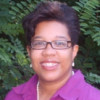The Role of Honesty in Mental Health Recovery
Most of us think of ourselves as honest people. Our families, religious institutions, and society at large encourage honesty and dissuade or even punish dishonesty. Society also permits for a certain level of dishonesty. Exaggerating a donation on a tax return or complementing a friend on a less than complementary haircut are rarely frowned upon. In this article, we will look at how incorporating honesty into treatment can help move one forward.
Truth needs to be a headline, not on the backpage.

Honestly coping with reality and overcoming denial
One of the first steps in dealing with a difficult situation is to admit the situation exists. Ignoring the noise from under the car, the doctor’s request to watch my weight, or a past-due bill are all forms of denial. In each of these situations, ignoring the problem can only make the problem worse. When one is faced with both a difficult situation and the pain of mental illness, it is easy to ignore the situation. After all, there are so many other things that need attention.
When one is honest about the reality of the difficult situation, work can begin to correct it or work through the negative feelings associated with it. One way to accomplish this is by writing down what the situation actually is. An example of this would be making a list of all of the credit card bills and how much is owed on each bill. Once the problem is written down, it is difficult to ignore or explain away. Writing the problem down makes it concrete. It's more than a thought -- it is now something that can be seen and touched.
Involving someone else in the situation is another way of being honest about the reality. Examples of this would include confessing one was in a car accident or admitting to a sponsor that a relapse has occurred. Once the truth has been shared it cannot be taken back.
Would you want Pinocchio as your best friend?

Honesty and developing healthy relationships
Honesty is key in healthy and trusting relationships. If one struggles with trusting others it can be hard to be honest. Keeping thoughts and feelings to one’s self reduces the possibility one will become hurt. It makes sense, but it is not helpful. The relationships that develop when one is holding back are not based on reality. Being honest, especially about what one feels, can be difficult, but it allows the other person the opportunity to prove trustworthy.
The relationship built on honesty is also more rewarding. If someone is holding back there is a constant fear that one day those thoughts or feelings will be revealed and the other person will not be able to deal with them. This creates an unnecessary sense of anxiety.
Locking up feelings or secrets are not healthy and can prevent a speedy recovery.

Honesty is the opposite of secret keeping
Secret keeping is a key destructive way of handling interpersonal relationships. The secret keeper habitually keeps important information from others out of fear of their response. This habit typically begins in childhood when an authority figure tells a child to keep an important secret.
Secret keeping is a key component of the types of abuse that lead to depression and anxiety disorders. It is common for abusers to insist the victim keep the abuse silent. Sometimes a threat is issued to ensure this occurs. Survivors then learn that it is critical to keep secrets. This concept stretches beyond the abuse and becomes a part of life leaving the survivor alone and unsupported. The solution lies in being open and honest even when it does not feel comfortable. Being aware of the roots of the secret keeping can help. It can also be helpful to practice being honest with a trusted therapist before opening up to a loved one.
Secret keeping can be dangerous if one is keeping secrets away from helpers. For example, it is common for those struggling with bipolar disorder to describe their symptoms of depression, but neglect to share their symptoms of mania. This can result in a misdiagnosis and inappropriate prescriptions. One should never hold back when talking with their professional helpers. Hearing voices, thoughts of self-harm or harming others, weird dreams, and the like should all be shared. A good professional is not going to call you “crazy”. The information you are holding back could be what was needed to make an accurate diagnosis or recommendation for treatment.
Honesty and developing self-worth
The feeling of a job well done is like nothing else. When one is honest although it would have been easier to be dishonest, a sense of accomplishment follows. Being radically honest gives something of value for someone to base their self-worth upon. Having an accurate self-worth leads to accurate and healthy self-talk which in turn leads to greater overall well-being. Conversely, being dishonest can lead to feelings of shame, guilt, and failure and could spark new or deepening depression.
Examples of Using Honesty to Address Various Symptoms
Symptom to address
| How to be radically honest
|
|---|---|
suicidal thoughts
| Tell professionals or other supporters your thoughts
|
compulsive need to clean
| Remind yourself that millions of people survive and live productive lives without excessive cleaning.
|
hyperactivity
| Inform your boss it is helpful for you to switch tasks frequently.
|
substance abuse
| Tell your probation officer before you are tested.
|
expressing anger in a disrespect way
| Write an apology letter.
|
fear of flying
| Remind yourself the pilot is the expert and would not get in the plane if there was a problem.
|
Honesty and values conflict
As previously mentioned, for most of us the need for honesty is ingrained through family, morality, and society. As such honesty is highly valued. When we violate our personal values a conflict develops that can bring stress, shame, and regret. Living with inner conflicts is difficult work and can fuel symptoms of mental illness. Imagine the following scenario. A student cheats on a college exam. She feels horrible but gets a good grade and graduates on time. Knowing she does not really understand the concepts presented, she begins to tell herself she is not capable of doing the job for which she trained. Ashamed of her misdeed, she stumbles during interviews when asked about her education. Now months later she is still stuck. Her poor interview performance results in no job offers and reinforces her negative self-talk. Her self-esteem plummets and depression increases. While this may be an extreme example, it does demonstrate how a single act of dishonesty can have a huge impact on well-being.
None of the suggestions here are easy, but honesty is virtue we all need to embrace. There are particular benefits for those who are struggling with mental illnesses and healing can follow those who do.
Honesty includes looking inward sometimes.









